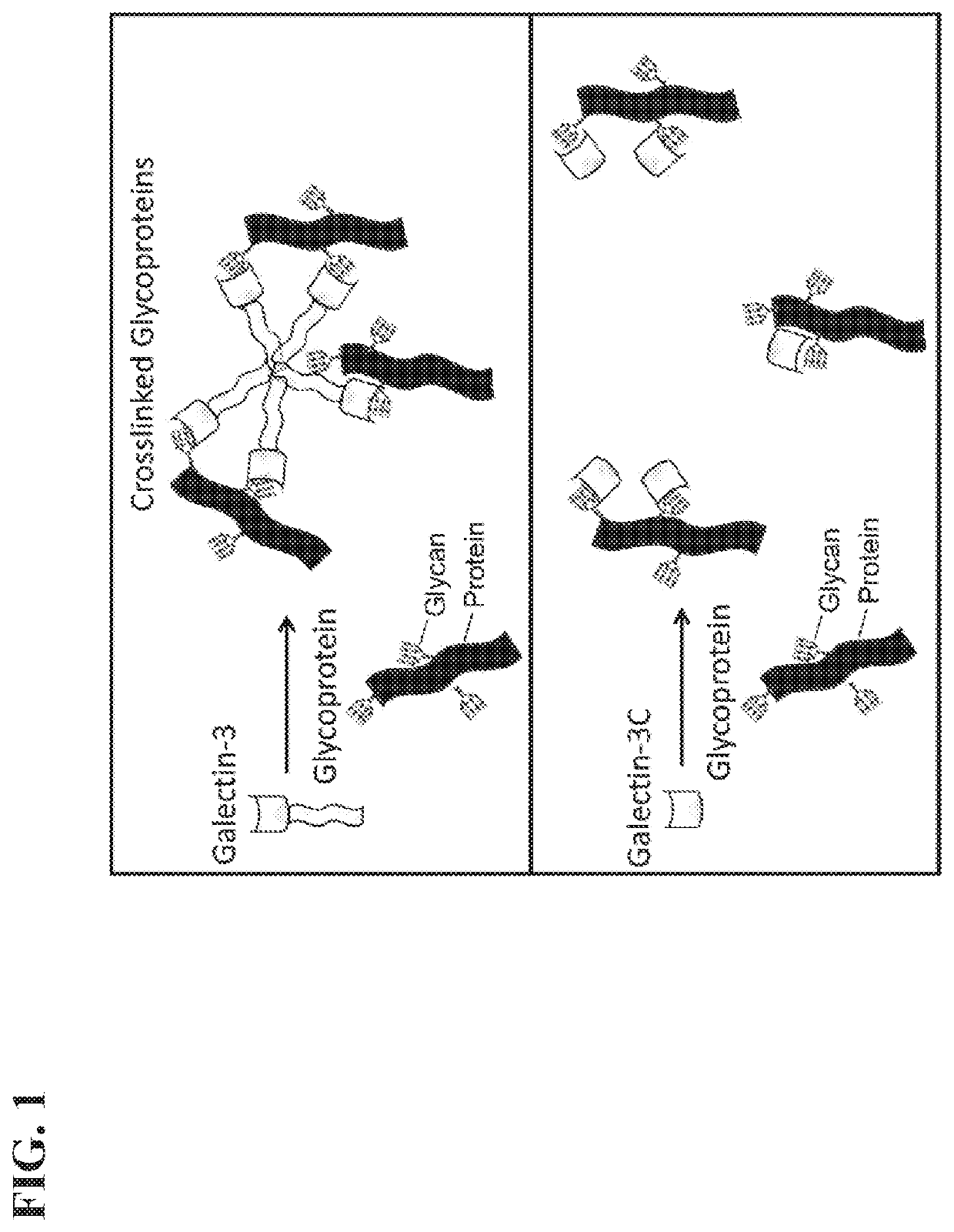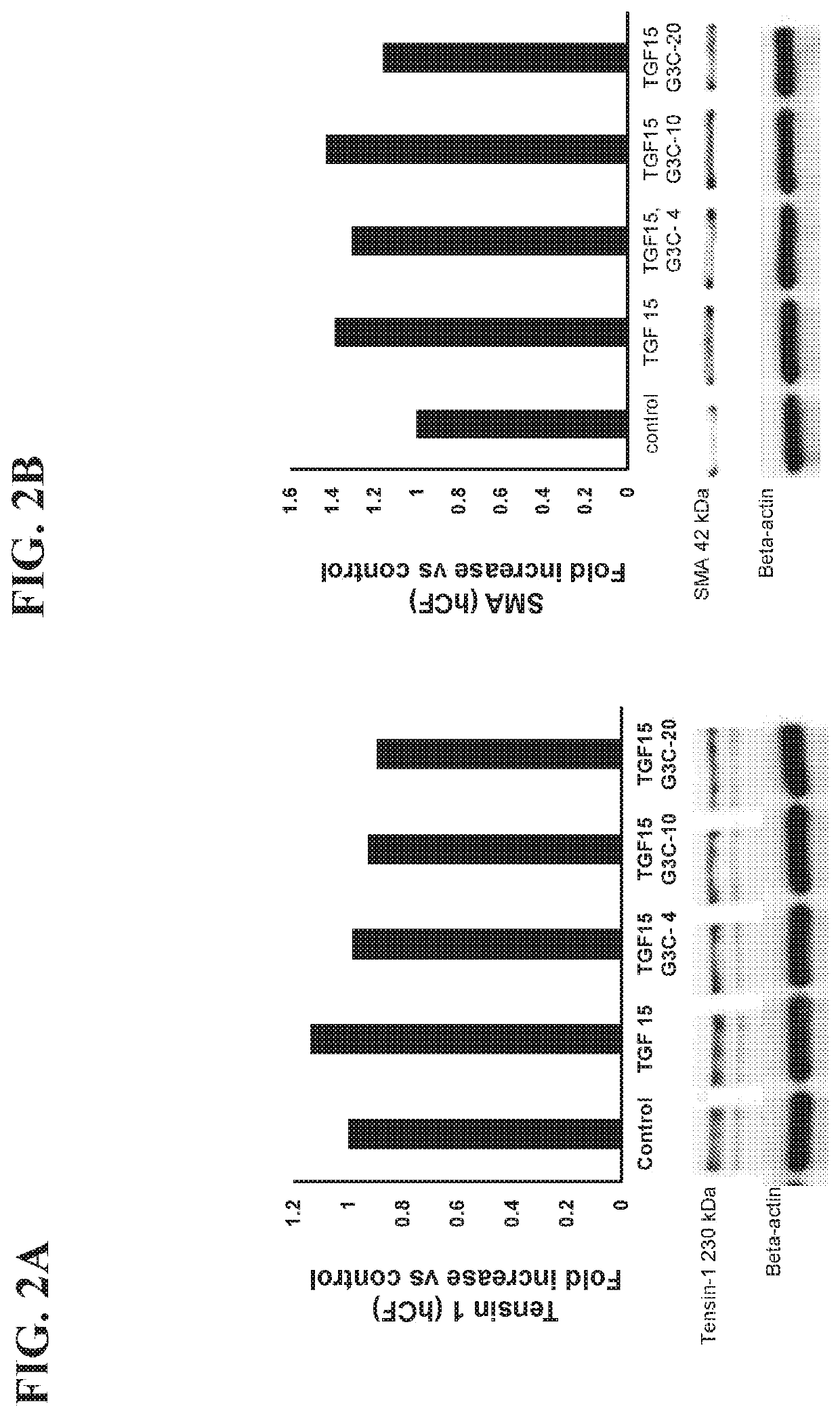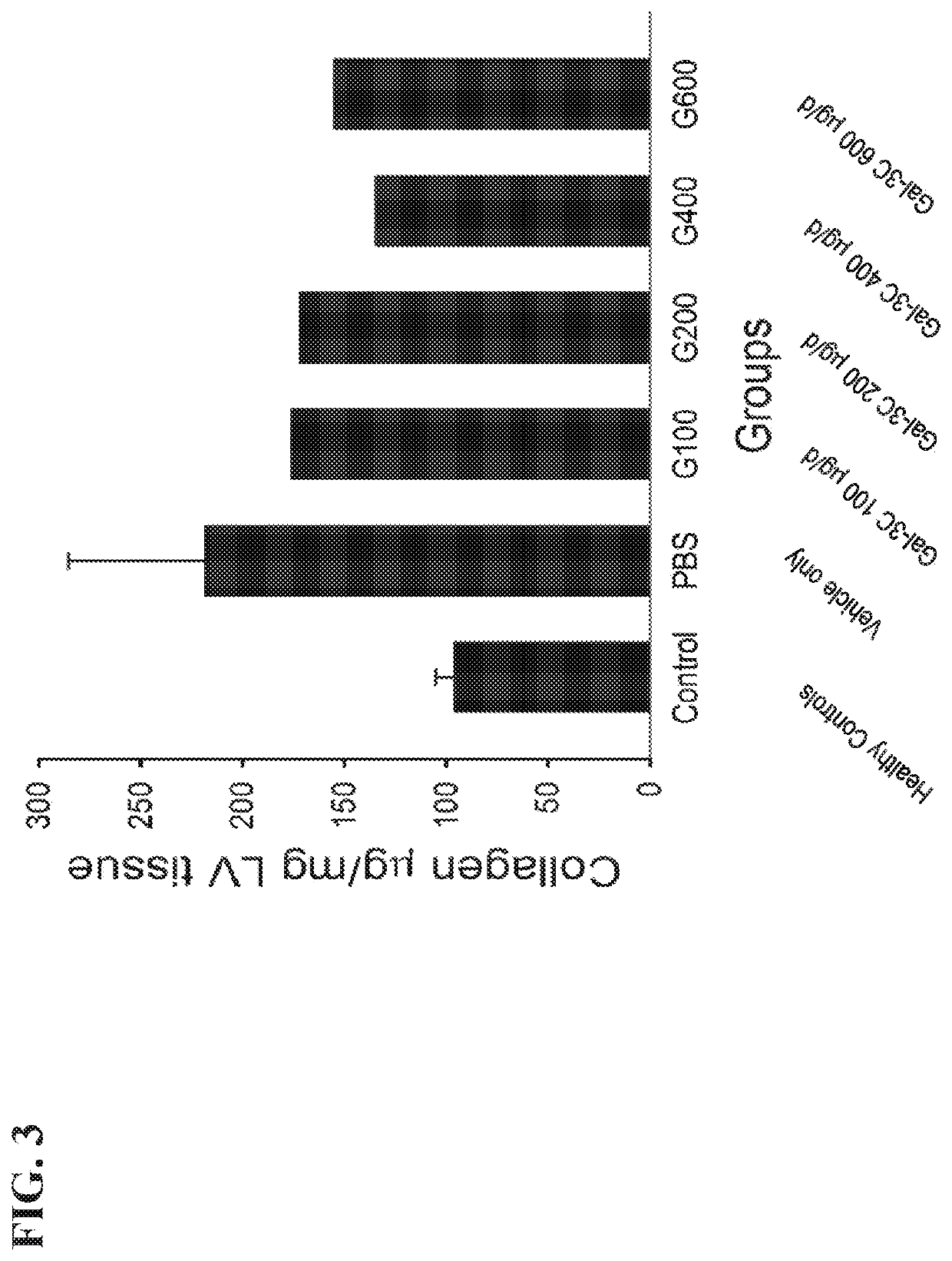Methods and compositions for preventing and treating damage to the heart
a technology of preventing and treating heart damage and compositions, applied in drug compositions, peptide/protein ingredients, cardiovascular disorders, etc., can solve the problems of heart failure, loss of myocardium, cell death of heart cells, etc., to improve cardiac function, prevent and treat heart damage, and reduce mortality
- Summary
- Abstract
- Description
- Claims
- Application Information
AI Technical Summary
Benefits of technology
Problems solved by technology
Method used
Image
Examples
example 1
n of TGF-β Induced Differentiation of Primary Cardiac Fibroblasts to Myofibroblasts In Vitro
[0098]Galectin-3 was purified on lactosyl-sepharose from recombinant E. coli pelleted from 40 L of culture, collagenase digested, and then Gal-3C was isolated on lactosyl sepharose as previously described (41). Primary human cardiac fibroblasts (Cell Applications, San Diego, Calif.) were purchased and cultured as per the vendor's recommendations. 200,000 cells at passage 2-3 were cultured in 6-well plates until confluent, starved for 48 h and then induced to differentiate to myofibroblasts by treatment with 5 or 15 mg / ml TGFβ1 for 48-72 h. Varying concentrations of Gal-3C were also incubated with the cells. The cells were harvested, lysates prepared, and total protein quantified with a BCA assay (Pierce / Thermo). A total of 12 mg protein was analyzed per condition by immunoblots using primary Abs against smooth muscle actin (SMA) and tensin 1 (Sigma-Aldrich). The immunoblots (FIG. 2A and FIG. ...
example 2
of Fibrosis and Improved Left Ventricular Function after MI with Treatment Beginning Prior to MI
[0099]Animal experiments to test the therapeutic potential of Gal-3C in the preservation of post-MI cardiac function were performed using surgical induction of MI in rodents and functional evaluation of treatment as previously described (61-66). To most accurately model cardiac damage experienced by MI patients, a well-established ischemia-reperfusion procedure was used in which the left anterior descending coronary artery (LAD) of rats was occluded for 25 min followed by restoration of blood flow (67). This standard MI model is more clinically relevant than permanent LAD ligation models because the reperfusion experienced after post-MI angioplasty not only limits the size of the infarct, but paradoxically introduces free radical damage, and is well validated as a model for post-MI heart failure experimental therapies (68).
[0100]Experiments were performed according to the UCSF guidelines ...
example 3
of Fibrosis and Improved Left Ventricular Function from Delayed Treatment Beginning 4 Days after MI
[0108]In a subsequent experiment, the high dose Gal-3C and the PBS control were administered by Alzet pump over a delayed delivery window of from 4 days until 10 days post-MI (denoted as “delayed window”) to rats that had been subjected to the same ischemia-reperfusion procedure as described in Example 2 above. Delayed treatment might better enable fibrotic repair of the infarct while preventing wall rupture. If efficacious, delayed treatment in the rats could be an indication that Gal-3C was acting to modulate the secondary reparative process that occurs later and over a longer time period than the acute or chronic inflammatory responses to MI, and could enable beneficial treatment of so-called “silent MIs” that sometimes are not detected for days or weeks after occurrence. In addition, beneficial results from delayed treatment could be indicative of the ability of the Gal-3C treatmen...
PUM
 Login to View More
Login to View More Abstract
Description
Claims
Application Information
 Login to View More
Login to View More - R&D
- Intellectual Property
- Life Sciences
- Materials
- Tech Scout
- Unparalleled Data Quality
- Higher Quality Content
- 60% Fewer Hallucinations
Browse by: Latest US Patents, China's latest patents, Technical Efficacy Thesaurus, Application Domain, Technology Topic, Popular Technical Reports.
© 2025 PatSnap. All rights reserved.Legal|Privacy policy|Modern Slavery Act Transparency Statement|Sitemap|About US| Contact US: help@patsnap.com



